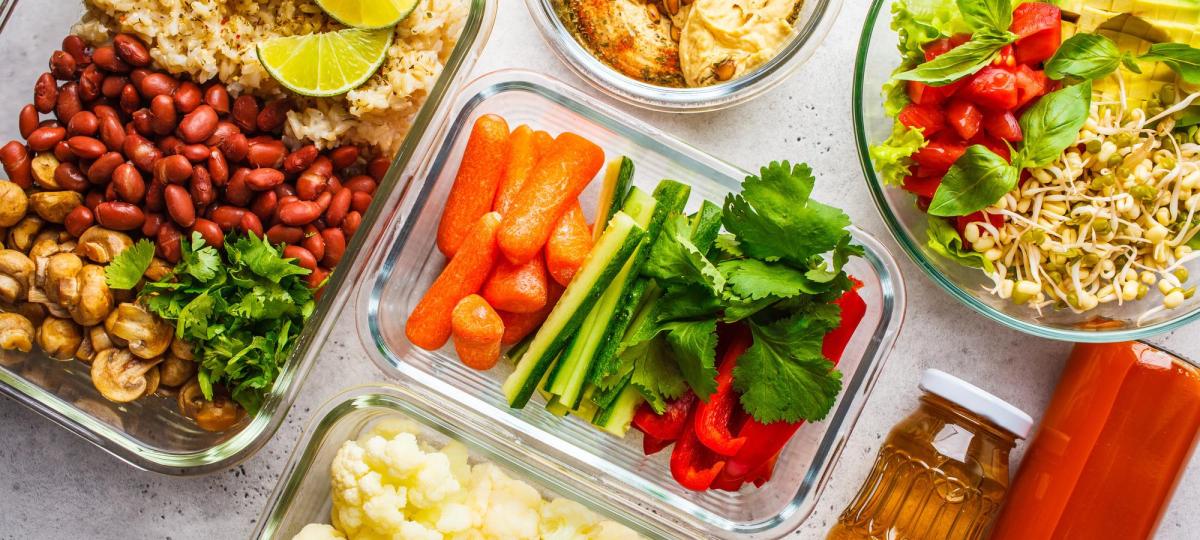Five simple tips for a healthier diet in stressful everyday life

On the way to work, the butterstroid piece quickly flipped down and in the office there is a quick to-go meal in front of the PC in addition to the chocolate as a snack for lunch. In the evening, a glass of red wine will be poured as a reward after the hard day. Or two glasses. In short: often nutrition in everyday life is a balancing act between lack of time and the desire to eat healthy.
Health coach Andreas Jopp says in a podcast sequence of the Faz Health: « Our brain reacts even more sensitively to poor nutrition than the rest of the body. » In the meantime, there are over half of our diet of ultra -high -processing foods that are too sweet and greasy and can cause inflammation in the body. According to Jopp, investigations with over 200,000 participants showed that the consumption of these foods increases the risk of depression by 40 percent. In addition to depression, unhealthy nutrition is also considered a Risk factor for further health problems: Obesity, cardiovascular diseases and joint pain, for example. The path to a balanced diet is not that complicated.
What is a healthy diet?
Different foods provide our body different essential nutrients. Carbohydrates, fats, proteins, VitaminsMinerals and water are among the most important food components for well -being and health. A varied diet Make sure that the body receives all the nutrients it needs, explains Daniela Krehl, nutritionist at the Bavaria Consumer Center: « Around two thirds should definitely be vegetable. » Means: lots of fruit, vegetables, cereals and legumes. Animal foods should be consumed sparingly because they often contain many saturated fatty acids and are poor in fiber. As far as the crowd is concerned, it is best to stick to two to three clearly defined meals a day. This structure promotes a regular rhythm and supports a balanced nutrient absorption. In addition, it gives breaks to the digestive system, which can have a positive effect on the metabolism.
According to Krehl, even a few simple adjustments can help to make everyday life healthier:
1
Fruit and vegetables match the season
Basically, the more crop more, the more vitamin -rich. The whole thing is often accompanied by regionality, since the products usually go through shorter transport routes. In winter you can easily fall back on warehouse vegetables, such as carrots and cabbage types, as these are not so sensitive when it comes to loss of vitamin.
2
Meal-prep for time problems
Simply cook larger quantities on weekends or on days off and deposit or freeze in the refrigerator. Alternatively, convenience products with fresh vegetables can also be combined with time stress, for example in the form of a frozen pizza, which is supplemented with a salad.
Distraction of eating can lead to the feeling of satiety too late and thus quickly absorb more calories than would actually be necessary. Active breaks or eating together can counteract this and we can better pay attention to the satiety signals of our body.
4
Nuts and fruit as a perfect snack
If the blood sugar falls rapidly during the day, we often need a small snack that brings us back to our performance level. Nuts (preferably unsalted) and fruit are ideal for the small snack or as a to-go snack because they are rich in nutrients and high-quality fats. However, it also applies: it is best to take a break for consumption to avoid unnecessary quantities.
5
The power of the liquid
A high fluid intake, especially in the form of water and unsweetened teas, is a very simple way to do something good for our body. This not only lowers the calorie intake through sugar -containing drinks, but also ensures that the body always remains well hydrogenated.
Enjoyment in moderation: the key to a long life
So does a long life mean that you have fed perfectly for a lifetime? Not at all. In this context of interviews with over 100-year-olds, Daniela Klehl reports: « They all ate chocolate or a greasy roast pork, » she says. A common feature of this over 100-year-old is her enjoyment of life. Krehl emphasizes: « You can only enjoy in moderation. » Excessive consumption, on the other hand, already border. Her conclusion: « There is no unhealthy food per se, but only an unhealthy lifestyle. »
A notice: This contribution was made in cooperation with the master’s program in the Master’s degree in specialist journalism at the Technical University of Würzburg-Schweinfurt.






